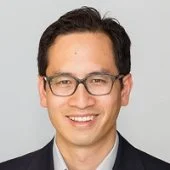
Understanding the Foundations of Human Speech
A unique and defining trait of human behavior is our ability to communicate through speech. Our laboratory is interested in determining the basic mechanisms that underlie our ability to perceive and produce speech. While much of this processing has been localized to the peri-sylvian cortex, including Broca’s and Wernicke’s areas, the fundamental organizational principles of the neural circuits within these areas are completely unknown.
To address this, our laboratory applies a variety of experimental approaches including psychophysics, local field potential and microelectrode array recordings, electrocortical stimulation, and real-time signal processing. These methods allow us to examine both local circuitry and global network dynamics spanning multiple cortical and sub-cortical regions with unparalleled spatial and temporal resolution in humans.
Our central goal is to provide a mechanistic account for the major properties of speech behavior in normal speakers and those with language disorders. Our ongoing research is not only deepening understanding of speech and its disorders, but also is leading directly to safer mapping methods to preserve language function during brain surgery.
Dr. Edward Chang
Dr. Edward Chang is a neurosurgeon who treats adults with difficult-to-control epilepsy, brain tumors, trigeminal neuralgia, hemifacial spasm and movement disorders. He specializes in advanced brain mapping methods to preserve crucial areas for speech and motor functions in the brain. He also has extensive experience with implantable devices that stimulate specific nerves to relieve seizure, movement, pain and other disorders. He is the Chair of the Department of Neurological Surgery.
Chang's research focuses on the brain mechanisms for speech, movement, emotion, and learning.
Chang earned his medical degree at UCSF, where he also completed a residency in neurosurgery. He was honored with the Blavatnik National Laureate for Life Sciences in 2015. In 2020, he was elected to the National Academy of Medicine, an honor that recognizes outstanding achievements and service in the fields of medical sciences, health care and public health. In 2022, he received the Pradel Award in Neurosciences from the National Academy of Sciences. In 2025, he was elected to the National Academy of Sciences for his transformative research into how the human brain perceives and produces speech.
Profile
Joan and Sanford I. Weill Chair of the Department of Neurological Surgery
Jeanne Robertson Distinguished Professor
Faculty page: https://profiles.ucsf.edu/edward.chang
Residency: UC San Francisco
Medical School: UC San Francisco
Undergraduate: Amherst College
Postdoctoral fellowship: UC Berkeley (with Robert Knight)
HHMI Medical Student Fellowship: UC San Francisco (with Michael Merzenich)

